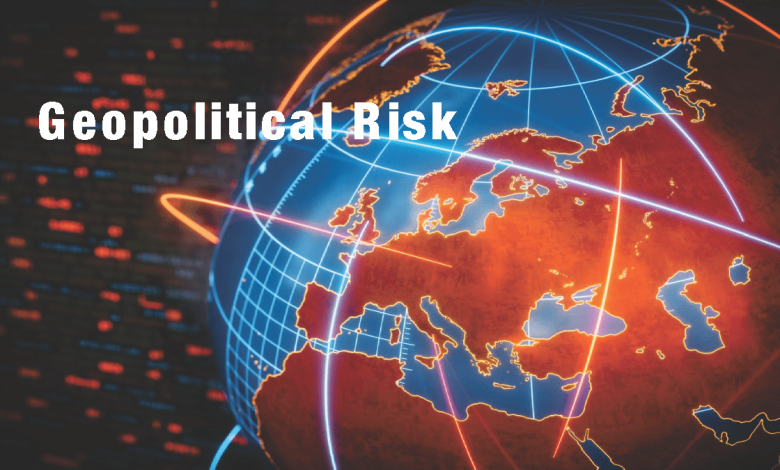Navigating Geopolitical Risks in International Investments: Smart Strategies

Navigating geopolitical risks in international investments is crucial for success for global investors in the global business landscape and global affairs. While opportunities abound in global markets, so do the challenges, including geopolitical uncertainties and geopolitical threats amid international conflict. Investors face uncertainties like geopolitical challenges, political instability, and regulatory changes that can impact returns. Understanding these risks in this era sets savvy investors apart from those who overlook them. A proactive approach helps mitigate potential losses in this era and seize profitable opportunities. This guide will provide key strategies to navigate these complex waters effectively.
Key Takeaways
- Understand the types of geopolitical risks that can affect international investments, such as political instability and trade tensions, to make informed decisions.
- Diversify your investment portfolio across different regions to reduce the impact of localized geopolitical events.
- Stay updated on global news and trends that may signal changes in the political landscape, helping you anticipate potential risks.
- Use risk management strategies, like hedging or insurance, to protect your investments from sudden downturns caused by geopolitical issues.
- Look for investment opportunities in emerging markets that may benefit from geopolitical shifts, as they can offer higher returns despite the risks.
- Collaborate with financial advisors who specialize in international investments to navigate complexities and make strategic choices.
Understanding Geopolitical Risks
Current Geopolitical Challenges
Geopolitical tensions are rising. Conflicts in regions like Eastern Europe and the South China Sea affect global investments. Investors must integrate geopolitical analysis into their strategies. This helps them anticipate potential risks and rewards. Continuous monitoring of geopolitical developments is essential. Events can change quickly, impacting markets unexpectedly.
Evolution of Geopolitical Risks
Geopolitical risks have evolved over the past few decades. The end of the Cold War marked a significant shift in global dynamics. Globalization has increased interdependence among nations, but it also introduced new threats. Emerging technologies now play a crucial role in shaping these risks. Cybersecurity threats and information warfare are prime examples of this change.
Historical Context of Risks
Several historical events have impacted international investments significantly. The oil crisis of the 1970s disrupted markets worldwide. The 2008 financial crisis showed how interconnected economies could collapse due to geopolitical factors. Lessons learned from these crises highlight the importance of geopolitical expertise in investment decisions. Comparing past and present risks reveals both patterns and differences that investors must understand.
Strategies for Mitigating Risks
Diversifying Investment Portfolios
Diversification is essential in managing geopolitical risks. Spreading investments across various regions lowers exposure to any single event. For instance, if one country faces political unrest, investments in other stable regions remain safer. Investing in sectors like technology or healthcare may also help. These areas tend to be less affected by geopolitical tensions compared to energy or defense sectors.
Hedging Against Uncertainties
Investors can use financial instruments to hedge against uncertainties. Options and futures are common derivatives that allow for risk management. These tools can protect against potential losses from market fluctuations caused by geopolitical events.
Insurance products also play a vital role. Political risk insurance covers losses from government actions that disrupt business operations abroad. This coverage provides peace of mind for investors.
Contingency plans are crucial as well. Having a strategy in place helps navigate unforeseen disruptions. Regularly reviewing these plans ensures they stay relevant to changing geopolitical landscapes.

Analyzing Opportunities Amidst Turbulence
Identifying Investment Opportunities
Regions like Southeast Asia and Eastern Europe may benefit from current geopolitical shifts. These areas often attract investments when larger economies face uncertainty. Geopolitical risks can lead to unique investment opportunities. For instance, companies involved in renewable energy may thrive as oil prices fluctuate. Thorough research and due diligence are critical. Investors must assess the impact of changes on various industries.
Capitalizing on Instability
Market volatility often presents chances for short-term gains. Investors can leverage price drops during geopolitical events. Stocks in affected areas might become undervalued, creating potential for profit. Strategies such as buying on dips can be effective. Timing is essential, as market analysis helps identify the right moments to act.
Proactive Investing in Turbulence
A proactive approach is vital during geopolitical turbulence. Staying informed about global events allows investors to adapt quickly. Changes in leadership or policies can shift market dynamics rapidly. Strategic leadership plays a crucial role in guiding investment decisions. Companies that anticipate these shifts can position themselves advantageously.
Closing Thoughts
Navigating geopolitical risks in international investments is no small feat. You’ve learned how to identify these risks and the strategies to mitigate them. You’ve also seen how opportunities can arise even in turbulent times. This knowledge empowers you to make informed decisions that can lead to success.
Stay proactive. Keep your eyes on global events and adapt your strategies as needed. Don’t hesitate to seek expert advice when necessary. Your ability to navigate these complexities can set you apart from others. Take charge of your investment journey today. Dive deeper into the world of geopolitics and refine your approach for better outcomes.
Frequently Asked Questions
What are geopolitical risks in international investments?
Geopolitical risks refer to uncertainties arising from political events or conditions in a country that can affect investment returns. These include conflicts, regulatory changes, and economic instability.
How can investors identify geopolitical risks?
Investors can identify geopolitical risks by monitoring news sources, analyzing political trends, and using risk assessment tools. Regular updates from reliable financial analysts also help in understanding potential impacts.
What strategies exist for mitigating geopolitical risks?
Common strategies include diversifying investments across regions, using hedging techniques, and staying informed about local political climates. Engaging with local experts can also provide valuable insights.
Why is diversification important in managing these risks?
Diversification spreads investments across various markets and sectors, reducing exposure to any single geopolitical event. This strategy helps stabilize returns during turbulent times.
Can geopolitical risks create investment opportunities?
Yes, geopolitical risks can lead to undervalued assets or sectors. Savvy investors may capitalize on market overreactions to invest at lower prices during periods of uncertainty.
How often should investors reassess their geopolitical risk exposure?
Investors should reassess their exposure regularly—ideally quarterly or after major political events. Staying proactive ensures timely adjustments to investment strategies based on evolving risks.
Where can I find reliable information on geopolitical trends?
Reliable information can be found through financial news outlets, government publications, and specialized research firms. Subscribing to expert analyses and reports enhances understanding of ongoing geopolitical dynamics.
 Send Buck a voice message!
Send Buck a voice message!




